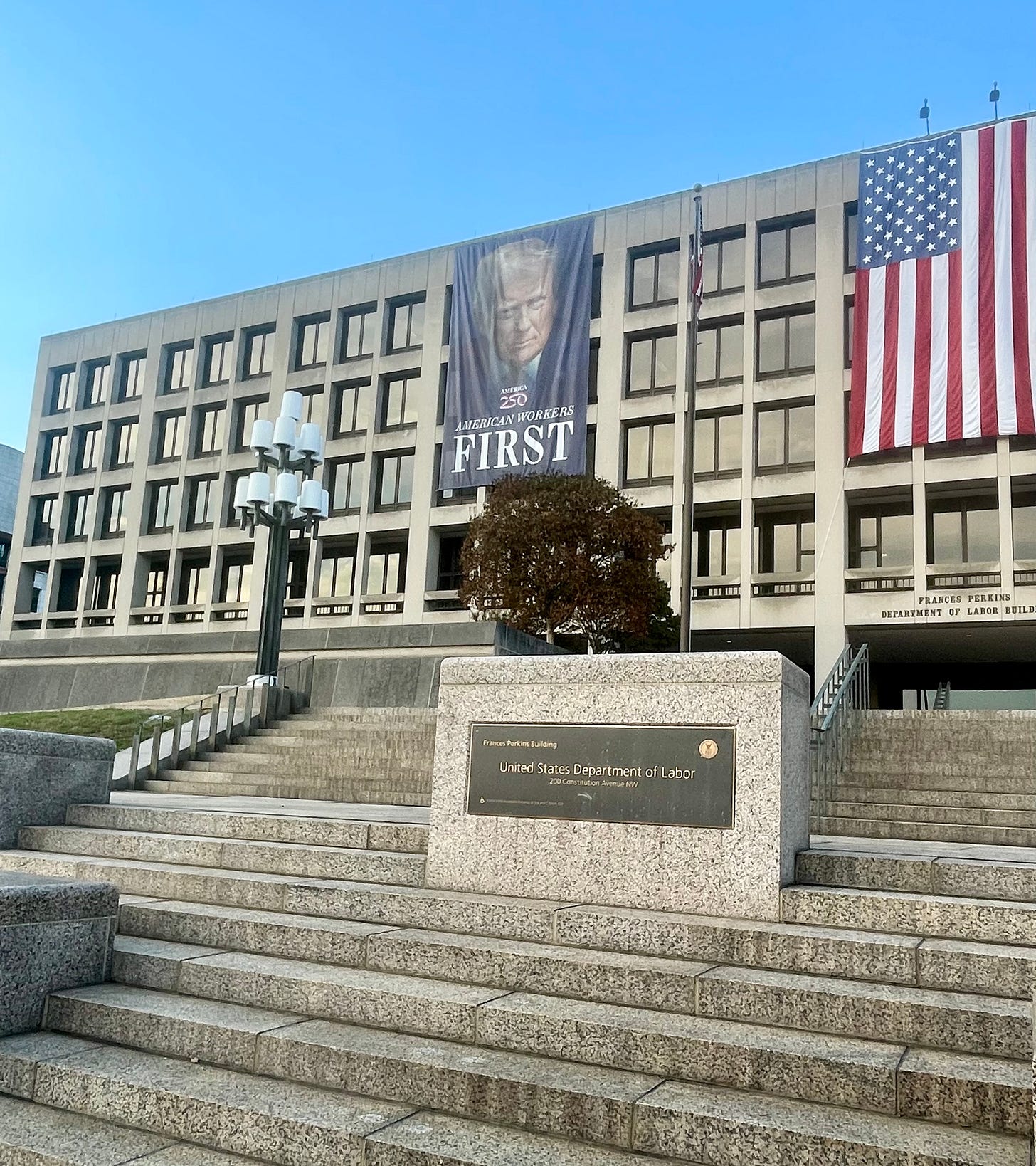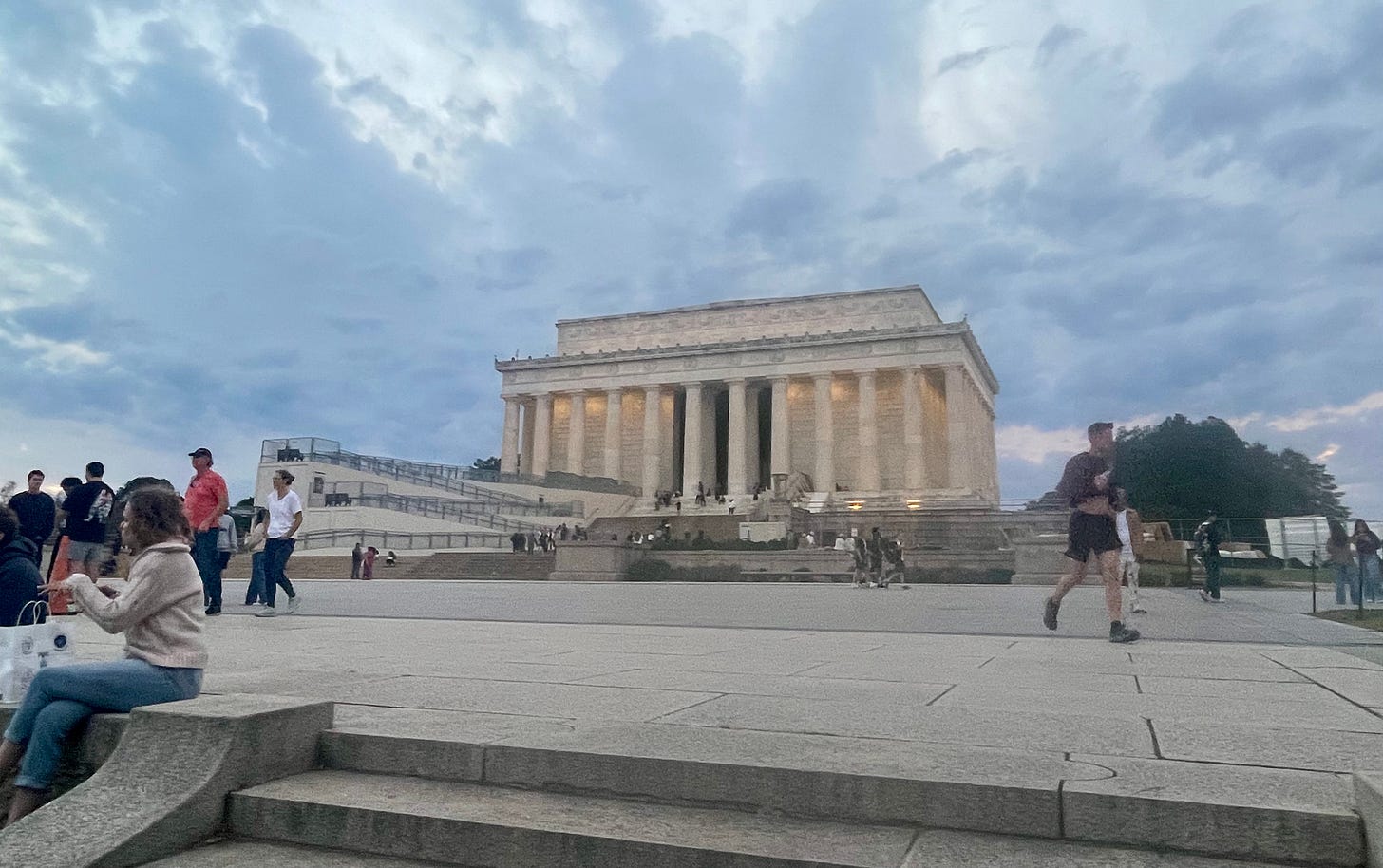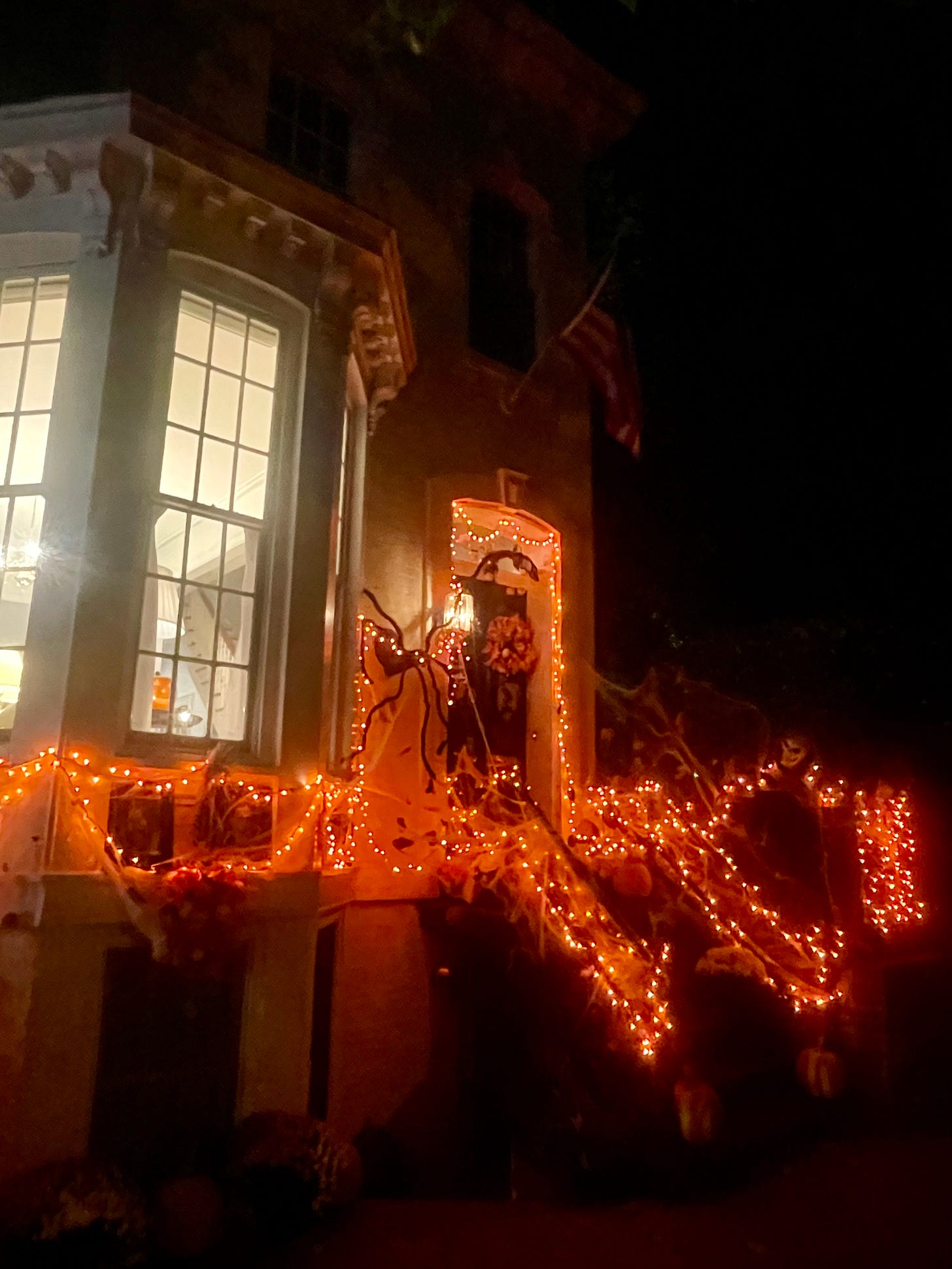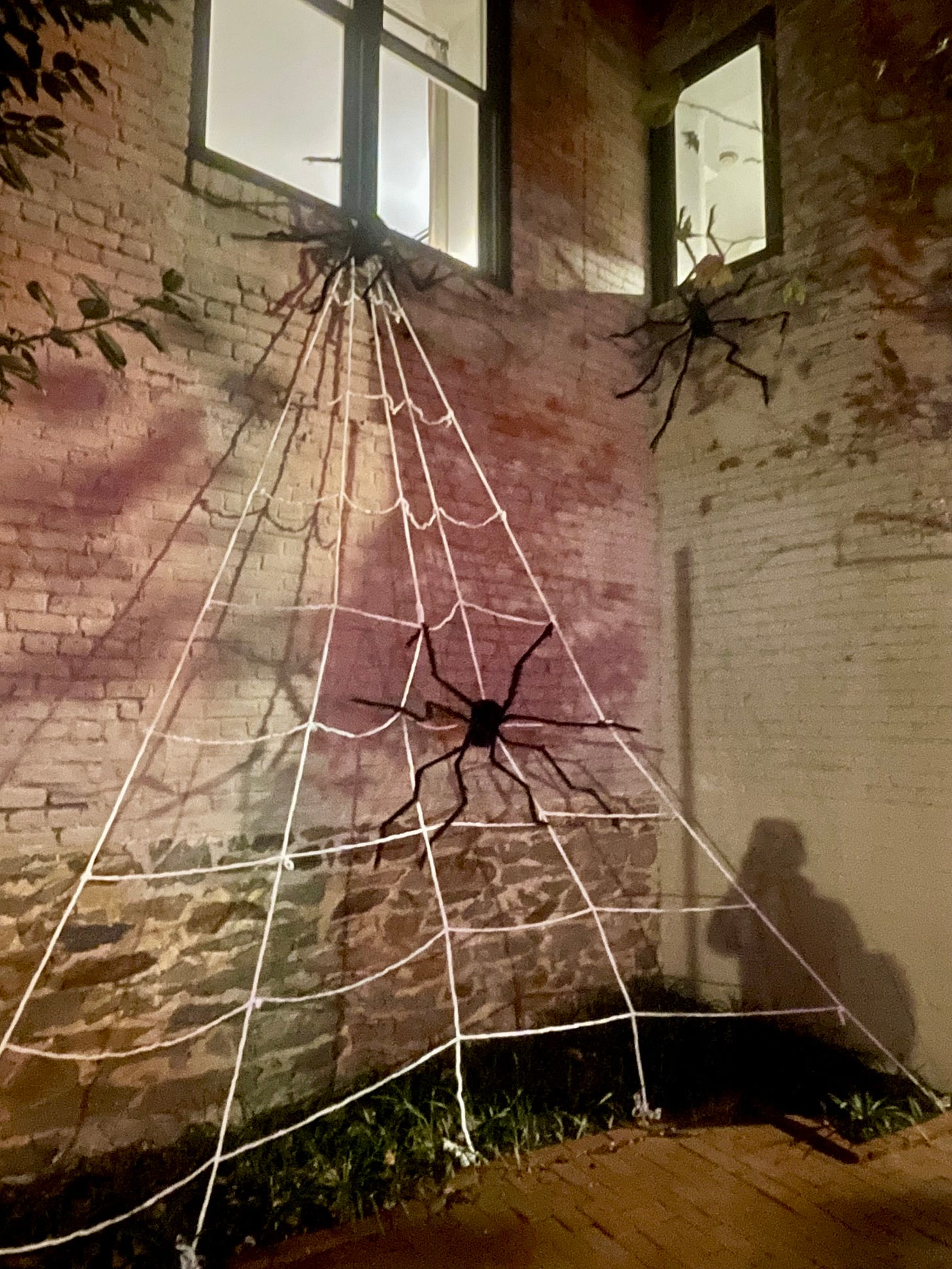The Blessed Rule of Law, &c.
On a summit; ‘TDS’; an ice-cream parlor; and more

Yesterday, I participated in a rule-of-law conference—a conference hosted by the Society for the Rule of Law. The purpose of the organization is right in the organization’s name.
Here is what they say in their mission statement: “We are a group of attorneys, law students, and other public-spirited citizens who would traditionally be considered conservative or libertarian.”
These guys believe in “the rule of law [natch], the power of truth,” and other good things.
In sum, “We believe, as the Founders did, in ‘a government of laws, not of men.’”
Hear, hear.
Should there be a Society for the Rule of Law? I mean, should such an organization be necessary? Maybe not. But it is, and I’m glad this organization exists.
It is a “point of light,” as the first President Bush might say.
The group’s executive director is Gregg Nunziata—two g’s, thank you very much! He is a legal eagle who worked in Republican circles for many years. He worked for three GOP senators. One is now the majority leader; another is secretary of state.
By the way, before I leave the subject of two g’s, I’d like to tell you a Lincoln story.
He had a friend named John Addams, the father of Jane Addams. Letters to him, he would address: “My Dear Double D-ed Addams.”
Lincoln loved wordplay (as many great men do, I have found).
At the Rule of Law Summit, I moderated a session whose heading was this: “Norms, Prudence, and Republican Virtue: Can Our Political Culture Still Support Ordered Liberty?” That is very well worded.
Our panelists were three: Lindsay Chervinsky, the presidential historian; Jonathan Rauch, the political writer; and Greg Jacob, another legal eagle, who served as counsel to Vice President Mike Pence.
About January 6, and the counting of electoral votes, Jacob gave advice that was very different from ... well, the president’s desires.
I’m not sure I have known someone whose last name was “Jacob.” I asked Greg, “Have you had to take the ess off your last name your entire life?” Yes, he said.
His line is: “One of me is enough.”
I thought of Farrukh Dhondy, the Anglo-Indian writer. I got a story from him. One day, he called up Robert Silvers, the esteemed editor of The New York Review of Books.
Dhondy said, “Hello, Mr. Silver?” The editor replied, icily, “It’s ‘Silvers.’” Farrukh said—so help me, or him—“If I want two, I’ll ask for them.”
The conversation did not proceed very smoothly, I understand.
***
In recent years, words that might once have been clichés, platitudes, or banalities have become more meaningful to me. Very meaningful.
“A republic, if you can keep it.”
That was Benjamin Franklin, as you know. What about Jimmy Carter, who, campaigning for president, said, “We deserve a government as good as its people”?
Let me ask you: In a democracy—a free and open society—isn’t a government always, or usually, as good as its people (and no better)?
That is a touchy, possibly painful, question.
“Freedom is always one generation away from extinction.” Ronald Reagan liked to say this. I thought it was a little ... alarmist. “There is a great deal of ruin in a nation” (Adam Smith).
But consider the example of Venezuela—which was a model for South America. Democratic, prosperous. In the blink of an eye, it was a police state, half starving. Eight million people have fled Venezuela, to form a vast diaspora.
Going back, we have John Adams—not Lincoln’s friend, with the double d, but the second president. “Our Constitution was made only for a moral and religious people. It is wholly inadequate to the government of any other.”
Those are the most famous sentences of his letter to the Massachusetts militia. But the two sentences that precede those are notable as well.
“... we have no government armed with power capable of contending with human passions unbridled by morality and religion. Avarice, ambition, revenge, or gallantry would break the strongest cords of our Constitution as a whale goes through a net.”
Two comments: It would have been natural for a New Englander to think of such an image, wouldn’t it have?
Also, what is gallantry doing on that list of bad qualities? To men such as Adams, “gallantry” meant nearly the opposite of what it does today. It meant, essentially, an ungallant approach by men toward women.
I will now give you Andy Warhol: “Art is what you can get away with.” (Marshall McLuhan said much the same.) Well, Donald Trump is testing what a president in our system can get away with. And the answer is: a lot. A whole lot.
Can you put yourself on a coin, front and back? Yes.
Can you remake the White House, physically, on your say-so? Without a historical commission or a process or anything like that? Yes, manifestly.
Can you pardon basically every convicted criminal who supports you politically? You can, yes. What’s to stop you?
What is not written down—norms, customs, traditions—is as important as what’s written down (e.g., laws). The thing about norms: you may not notice them while they’re in place, but you’ll miss them when they’re gone.
***
At the Rule of Law Summit, during our session, Jonathan Rauch made an analogy to golf. Much of golf is honor. For generations, there has been a line: “Golf is a game of honor.” You learn something about a man’s character on the golf course.
Over the years, I’ve oft told the story of Bobby Jones, who, during the 1925 U.S. Open, called a penalty on himself. He had committed some infraction. No one had seen it. But he had. He wound up losing the Open by a shot.
People hailed him for his sportsmanship, naturally. Jones would have none of it. He scoffed, “Sooner praise a man for not robbing a bank.”
***
People sometimes ask me, “What can I do? What can individual citizens do to help our country?” I usually say, “Set an example. Be the best self you can be. That’s doing a lot, setting a good example. You don’t even have to say anything, or much.”
I put this question to the three panelists: What can individual citizens do? They all gave good answers. Greg Jacob was very brief. He said, “Demand character. Demand virtue. And jealously hold your own to account. That’s my recipe.”
***
At the conference, the summit, I met several people who had encountered Bill Buckley. One man said that, while a student at Denison University, in Ohio, he had the honor of picking up WFB at the airport. He was Bill’s escort, so to speak—his helper—on campus.
“The highlight of my college years.”
I also met Stuart Gerson, who worked in the Justice Department under the first Bush. For a short time, he was acting attorney general. WFB wrote something that was wrong. Gerson called him up. Bill made a correction.
I have learned something, over the last 30 years: Many, many people across this land have a Buckley story. I love to hear them.
***
Lest you forget who’s president ...
That’s a little—North Korean, in my book.
***
Scenes like that aside: I have always loved Washington—always thrilled to Washington. When I arrived there on Tuesday—when I emerged from Union Station—I felt a surge of patriotic pride.
Well, “pride” is not the right word, because I had squat to do with the making of America. I felt a surge of appreciation, of gratitude.
Not least on the approach of this:
People like me are often accused of having “TDS”—Trump Derangement Syndrome. In truth, we have love of country: great love for its principles and ideals, and we feel sick at seeing them trampled.
***
At a restaurant in Georgetown, I ordered a cheeseburger. It came with fries, automatically. “What are you going to tell us next, Jay? That Wednesday follows Tuesday?”
The thing is, this has stopped in New York. Rarely do fries come with your burger—you have to order them, or something else, separately.
And you can forget about a side salad ...
***
After the burger—and fries!—I went to an ice-cream parlor. If you don’t mind, I’d like to quote from something I wrote on May 29, 2003:
Happy Bob Hope’s Birthday. He’s a hundred today. And I have a little story to tell you. I met him once. Or rather, I saw him. I had a kind of encounter. I haven’t forgotten it, and I hope I don’t ever.
It was in my usual ice-cream place—Thomas Sweet, at Wisconsin Ave. and P St., I believe (this was when I lived in Washington). I was at the counter, getting my double-dip of chocolate and cinnamon. And I looked over, and there, at a table, was Hope, with his wife, Delores, and a couple of others (I suspect a daughter and a son-in-law). This was in about, oh—1996. So he was a youngster of 93 or so.
He was licking at his ice-cream cone, almost feebly—like an old man would. He looked terribly old—but beautiful, in a way. His hair was wispy, and his skin was about translucent. You could see thin blue or purple veins.
I started out the door—but something made me go back. I went back through the door, looked at him, and gave him a thumbs-up. I think I said, “Thanks a lot.” He saw me, and his eyes brightened, and he gave me about the most beautiful smile I’d ever seen. Beatific, even. For a moment, it was just me and him, in the whole world.
I left that parlor surprisingly moved. I mean, I was almost embarrassed at how moved I was. I thought that I had had a highly unusual encounter.
Now, I know that Bob Hope was no saint. But I loved him for many reasons, and still do. It also occurred to me—as I was walking back to my house that night—that I had seen one of the most famous people on earth. I mean, you’ve got Queen Elizabeth, you’ve got Paul McCartney, you’ve got Michael Jackson. But across the generations, in every pocket of the globe? Hope is one of the most famous people of the last century.
I loved him not least for his contribution to the popularization and acceptance of golf. (But maybe that’s not such a good thing. For the last 25 years or so, you’ve hardly been able to get a tee time.)
***
In Georgetown, my old ’hood, ’tis the season:
You’re nice to join me today, my friends. See you later.







I too met WFB once. I was the President of the Library Association at my boarding school and the Great Man was our guest speaker at the Association's Annual dinner. It was my duty to ride to the airport in one of the school cars to pick him up. On the 30 minute ride back to the school I sat with him in the back seat and he spent the entire ride asking me about the School, my plans, my hopes, my family. He was sincerely interested in what this callow 16 year old boy was all about. I will always remember his genuine desire to know another human being and his kindness in the inquiry.
As a style nut, I am pleased to learn the proper way to pluralize a lowercase letter is with an apostrophe. Thanks, Jay.